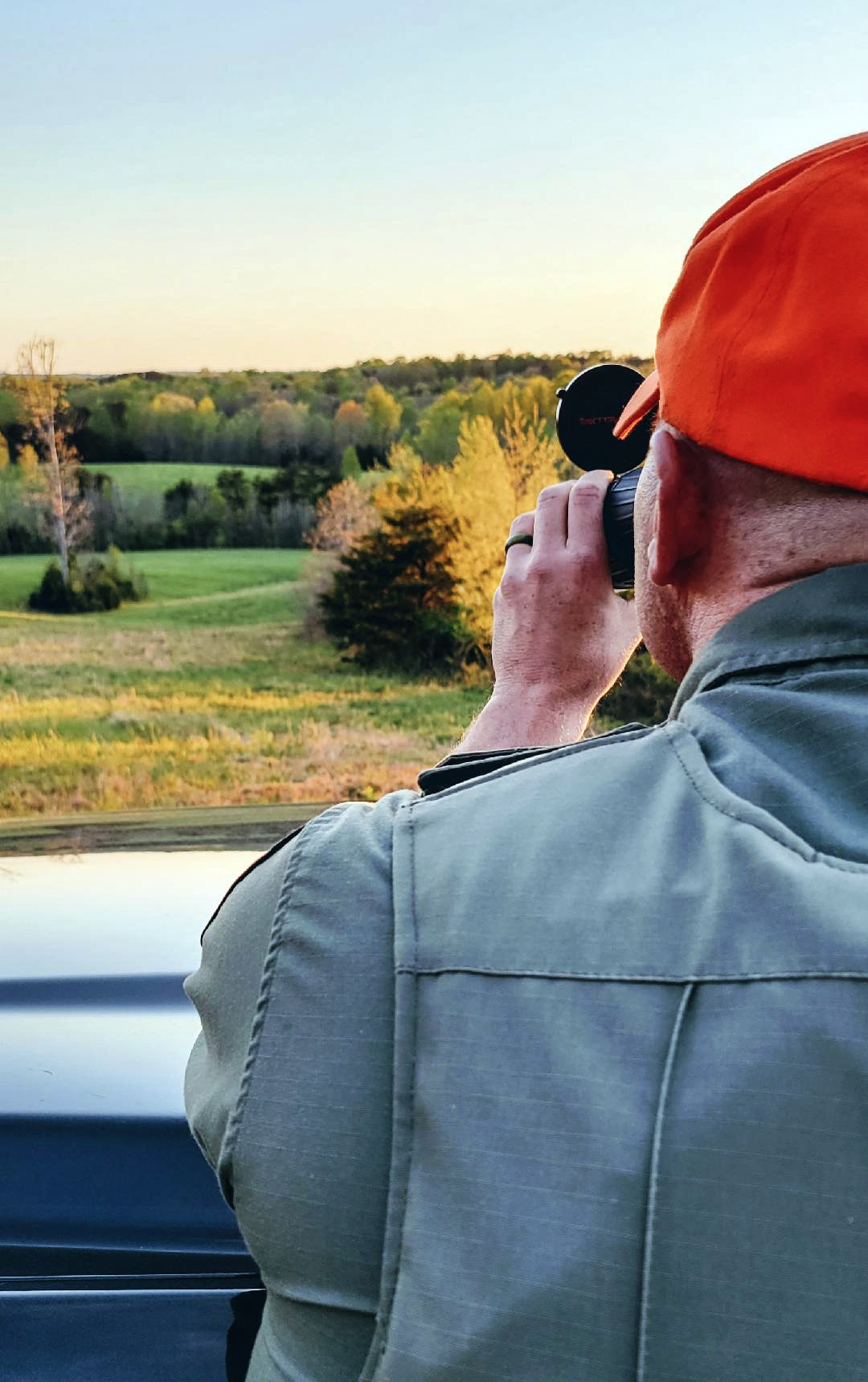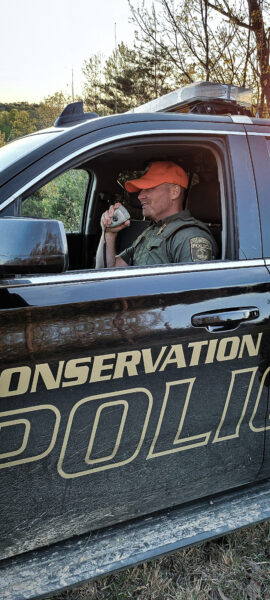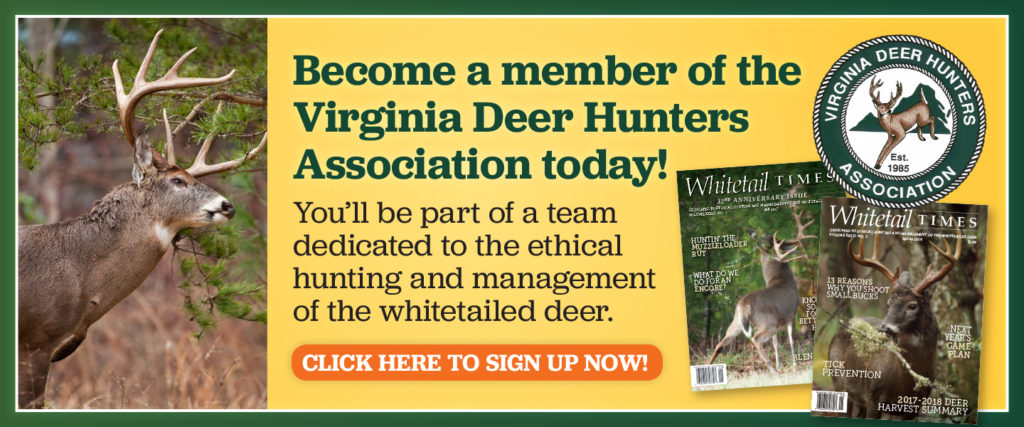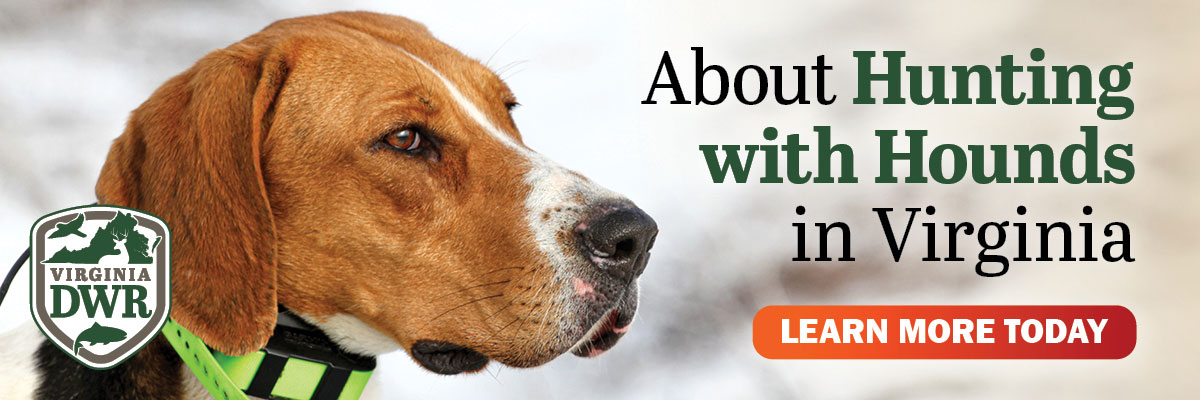By Eric Dotterer/DWR Master Conservation Police Officer for Whitetail Times
Deer hunting is a sport of planning and preparation. As a hunter, you may spend the entire preseason carefully choosing the perfect food plot mixture. You will labor and toil under the sun, seeking out the perfect conditions to enable those seeds to sprout and thrive. Trail cameras will be placed throughout the area in the hopes of finding that deer of your dreams.
And once the majestic beast is located, your relationship will begin to evolve into that of two chess players, locked into a battle of the minds. You will devote every free moment to reading Whitetail Times, looking for the tactical advantage that will lead you victory. The weekend will be spent shopping, not for groceries, but for the latest gear. Gear that will transform you into an invisible force, able to move through the woods with the stealth only seen in movies.
Opening day finally arrives, and blessed with the perfect hunting conditions, you get settled into the stand. As you wait, a sound is heard through the brush and you intently stare with anticipation. Deer or squirrel? A deer finally emerges and he is the buck of your dreams. There is a slight breeze that allows you to get your weapon into position. You take careful aim and with a steady hand a shot is delivered that leaves your quarry within sight of your stand.
This is your campfire story, a day to be immortalized in hunting lore, but as you drag the trophy back to the vehicle, there is a green silhouette in the distance. Conservation Police have a few questions about your dream buck. During the conversation, you learn the deer has been taken unlawfully. At this point, you realize the one thing that was overlooked during your preseason preparation was a full understanding of the Virginia Department of Wildlife Resource’s (DWR) Hunting and Trapping in Virginia regulations.

As you attempt to gain a full understanding of the rules and regulations, you may find some portions that need clarification. You should first call a Conservation Police Officer, but there are many hunters that seek answers from friends or social media sites. Friends and social media can be helpful, but answers to questions about the law should always come from an expert source.
I recall an instance where a hunter asked for clarification on a new law concerning convicted felons hunting with muzzleloaders on a hunting forum. I was speechless—how could such an important question be asked of a group of people without knowing their qualifications or experience? The post received hundreds of replies and many different answers. If a question is so important that you would take the time to open a web browser, find a site, post a message, and then sort through the replies to get an answer, you need to reach out to the officers that are trained to handle those questions. The best way is to contact your local DWR regional office.
I have come to realize that there are a small group of hunters who have chosen not to read the rules and regulations. I can still remember when I first encountered the situation. It was late February and I had spent the previous week going line by line through the harvest records of my county. My county had either-sex day, and I was trying to identify unlawfully harvested antlerless deer. I remember walking up to the house like it was yesterday. I knocked on the door and was greeted by an older gentleman.
As he opened the door, I could sense that I was the last person that he wanted to see on this afternoon. I identified myself and asked if we could talk about a deer that was harvested during the firearms season. I gave him the date, and with a smile, he began to tell me about the harvest. After he finished his story, he asked if there was something wrong.
I informed him that the deer had not been harvested on one of the county’s designated either-sex days. I explained the purpose of those days and their importance as a wildlife management tool. He immediately replied that he had never heard of that and he had lived in the county his whole life. I followed up by asking when he had last looked at a hunting regulations book.
He gave me a bewildered look and said that he had never looked at one before. I was speechless! I reached into the side pocket of my green uniform pants and gave him my copy. I explained that things change every year, and it was important to keep up with any new information. I then handed him a business card and told him that I would personally come to his house and explain everything that he would need to know for next year’s season. I finished the conversation by explaining what would happen regarding the unlawfully harvested antlerless deer. He apologized and we parted ways.
I do not recall what happened with the court case, but I figured he would never call. When the next hunting season came along, my phone rang, and to my surprise, it was the man from the previous year. He asked if I would come to his house and help him understand the hunting regulations.
I returned to that same kitchen, at that same table, and went through the entire book, highlighting and marking all the pages that contained the needed information. I then asked him to take the calendar off the refrigerator and I proceeded to circle all the dates that were either-sex days. We spent about an hour talking about the laws and sharing hunting stories. He thanked me and we parted ways.
He continued to call me for a couple years after that. Then, I never heard from him again. I would like to think that I had educated him on how to better prepare for the hunting season, and not that my stories had failed to entertain him. Either way, he never had another wildlife violation in my county.
Depending on the situation, these simple misunderstandings, or a lack of knowledge, could cost you more than just your happy memories. A game law violation can range from a warning to a mandatory court appearance. During a court appearance, based on the nature of the offense, a judge can give a fine, order the deer and weapon forfeited, or revoke hunting privileges.
A fear of prosecution should not be the main reason a hunter chooses to obey the game laws. The completion of your responsibilities as a hunter provides important data for DWR’s deer project coordinator. A majority of this information is collected through the deer check-in process. The coordinator will then use this data, not to determine an exact deer population, but to identify when a population needs to increase, decrease, or stay the same. Once that status is determined, the critical data is used to set bag limits and seasons. This is why it is vital to understand all of the rules and regulations.

Conservation Police Officers are happy to help hunters understand the regulations.
For instance, if hunters fail to obtain a harvest confirmation number as required by law or fail to accurately report the data, harvest numbers may become skewed over time. You may question the importance of choosing to ignore the check-in process. While one person’s failure to comply may not affect the overall data or have a negative impact, consider if the majority of hunters failed to do what is required by law—it could be detrimental to the conservation process.
The hunting rules and regulations act as a road map for the protection of our wildlife resources. The individual rules were developed to address a problem and protect our native and naturalized species. As wildlife technicians, it is our duty to know and follow the game laws, not out of fear of prosecution, but of reverence for our natural resources. This is why a full understanding of everything that is found in the hunting regulations is paramount to your success as a hunter and for future generations to enjoy these resources.
It is no secret that the ever-changing nature of game laws can, at times, make them difficult to understand. I personally know that it can be overwhelming to fully comprehend the regulations in their entirety. As Conservation Police Officers, we want each hunter to feel comfortable reaching out and asking questions. I always tell people that no question is too big or too small. We want to give you the confidence and reassurance that what you are doing in the field is legal. Hopefully, you will begin to think of Conservation Officers not solely as “Mr. Green Jeans” who gives tickets, but also as an additional resource to make your hunting experience more enjoyable.
Master Conservation Police Officer Eric Dotterer grew up in Shelbyville, Tennessee, where his love for hunting and fishing started at a young age. He set a goal of becoming a game warden by age 8 and spent his early years working at a hunting preserve located near his home. In 2007, he graduated from Tennessee Technological University with a degree in Wildlife and Fisheries Management and was hired by Virginia’s Department of Wildlife Resources later that year. After the academy, he was assigned to Pittsylvania County and continues to serve the area.
©Virginia Deer Hunters Association. For attribution information and reprint rights, contact Denny Quaiff, Executive Director, VDHA.



